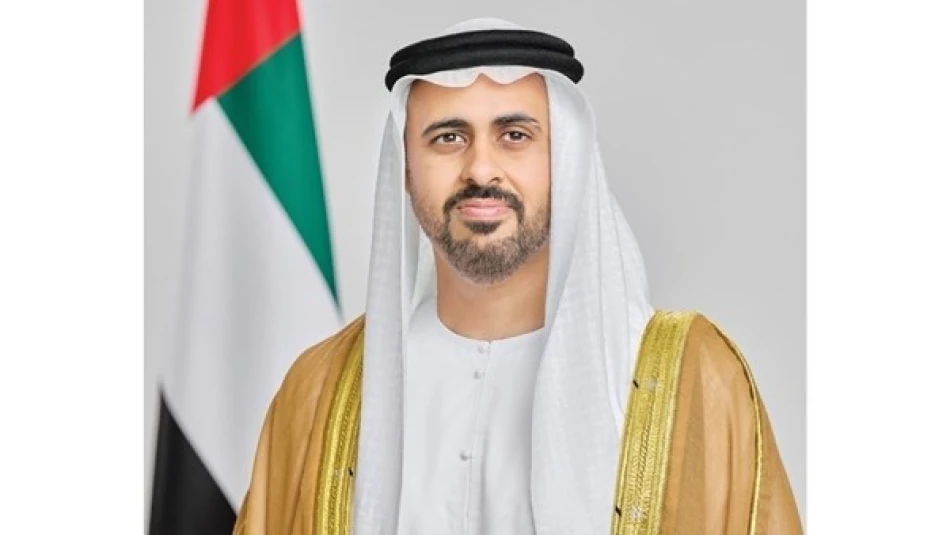
UAE Crown Prince Welcomes Dubai Ruler Aboard Passenger Train
UAE Rail Network Reaches Major Milestone as Dubai's Ruler Takes Historic Passenger Journey
The UAE's ambitious national railway project has achieved a significant breakthrough as Sheikh Mohammed bin Rashid Al Maktoum, Vice President and Prime Minister of the UAE and Ruler of Dubai, became among the first passengers to travel on Etihad Rail's new Dubai-Fujairah passenger service. This symbolic journey marks a pivotal moment for the Emirates' vision of transforming regional transportation and economic connectivity ahead of the service's full commercial launch in 2026.
Leadership Endorsement Signals Strategic Priority
The high-profile passenger trial demonstrates the UAE government's unwavering commitment to infrastructure megaprojects that position the nation as a regional logistics hub. Sheikh Dhiyab bin Mohammed bin Zayed Al Nahyan, Chairman of Etihad Rail, emphasized that this leadership support reflects the country's dedication to national projects that drive economic development and global competitiveness.
The timing of this journey is particularly significant, coming as the UAE prepares for the 2026 commercial launch of passenger services. This represents the culmination of years of strategic planning that began with the announcement of the "Projects of the 50" initiative in 2021, designed to accelerate the UAE's development in preparation for its centennial in 2071.
From Freight to Passengers: A Transportation Revolution
Building on Cargo Success
Etihad Rail's passenger service builds upon the successful launch of freight operations in 2023, which already connects key industrial and port facilities across the Emirates. The Dubai-Fujairah route is strategically crucial, linking the UAE's commercial capital with its primary port on the Indian Ocean, bypassing the congested Strait of Hormuz.
Regional Connectivity Vision
The passenger rail network represents more than domestic transportation—it's a cornerstone of the UAE's broader strategy to become the Middle East's primary transit hub. When fully operational, the system will connect all seven emirates and eventually link to the planned GCC railway network, potentially enabling rail travel from Kuwait to Oman.
Economic and Strategic Implications
Tourism and Business Impact
The Dubai-Fujairah passenger connection will significantly reduce travel time between the emirates, potentially boosting tourism to Fujairah's beaches and mountains while facilitating business connections. Current road travel between the emirates takes approximately 90 minutes, while the rail service is expected to offer faster, more comfortable alternatives.
Competitive Positioning
This rail development positions the UAE alongside other regional leaders in transportation infrastructure. Saudi Arabia's NEOM project includes extensive rail networks, while Qatar successfully demonstrated regional rail capabilities during the 2022 World Cup. The UAE's approach focuses on practical connectivity that serves immediate economic needs while building toward future expansion.
Investment and Market Perspective
The UAE's rail investment, part of a broader $13.6 billion infrastructure spending program, signals confidence in long-term economic growth and population expansion. For investors, the project represents the government's commitment to diversifying the economy beyond oil dependency while creating new opportunities in transportation, logistics, and related services.
The successful progression from freight to passenger services also demonstrates the project's viability and potential for generating sustainable revenue streams, making it an attractive model for other Gulf states considering similar investments.
Looking Toward 2026 and Beyond
As the UAE approaches the 2026 commercial launch, this high-profile test journey serves multiple purposes: validating the technical capabilities, demonstrating political commitment, and building public anticipation. The project's success will likely accelerate similar initiatives across the region and reinforce the UAE's position as a leader in innovative transportation solutions.
The rail network's completion will mark a transformative moment in regional mobility, potentially reshaping how residents and visitors experience the Emirates while strengthening the country's logistics advantages in an increasingly competitive global marketplace.
Most Viewed News

 Layla Al Mansoori
Layla Al Mansoori






